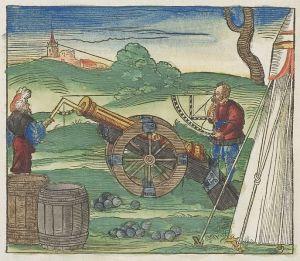It’s complicated.The Bible, that is.Tracing its origins as a book can easily occupy a lifetime, but the issue that keeps coming up with Scripture is how, definitively, to close the canon.If we should.My research on demons lately has led me once again to the books of Jubilees and 1 Enoch.The latter has long been popular with the paranormal crowd because it has some weird stuff in it.Thing is, as I mentioned back in November, these two books are part of the biblical canon of the Ethiopian Orthodox Tewahedo Church.And the Eritrean Orthodox Tewahedo Church.That makes these two books by definition “biblical.”You won’t find them in nearly any printed Bible in the western world, although you can locate them in collections of the Apocrypha and Pseudepigrapha.
This privileging of the western canon has implications.How do we know what really belongs in the Bible?Judaism never officially closed its canon, but by consensus the same books contained in the Protestant Hebrew Bible (aka Old Testament) are those recognized.Early Christian writers had different Bibles.It took almost four centuries for them to agree generally on what should be included.In Europe, that is.Not all branches of the church were represented in the Council of Rome.Instead of waiting for the consensus of all—there was an urgency to stomping out heresy—the decision was made.For some.Meanwhile other Christian groups continued to use certain books that “the official” closing of the canon left out in the rain.Or the desert.Whichever.
The question of just what’s in the Bible goes a bit deeper than that.The Tewahedo Churches of eastern Africa also recognize the books of 1 and 2 Maccabees.“So?” did I hear you say, “Catholics recognize them too—what’s the big deal?”These books, however, in the Ethiopian and Eritrean canons are not the same as western 1 and 2 Maccabees.The books of the Mäqabeyan contain different content while maintaining the same basic name.This means that we’re gonna need a bigger canon.What’s more, these books have been pretty much ignored by biblical scholars.One of the reasons, no doubt, is that they are written in Geez, a language not on the menu of too many seminaries.Simply to dismiss them, however, is to ignore the belief system of over 50 million Christians.It seems that the version of the Good Book tucked under the arm of many an evangelist is the condensed version.Putting together a canon, it appears, is more complicated than it looks.

